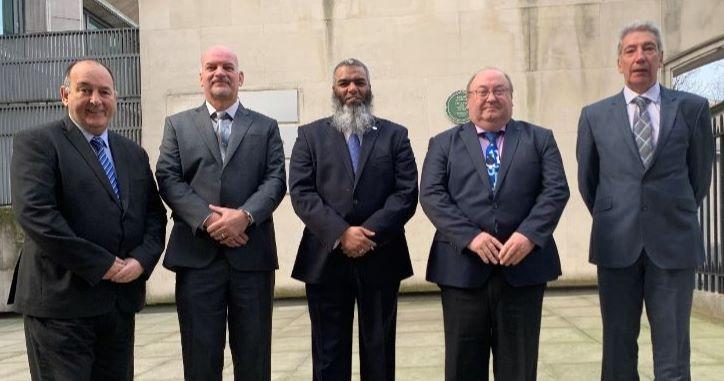"I am happy to announce the publication of the revised editions of Offshore Vessel Management and Self Assessment, Second Edition (OVMSA2), and Design and Construction Specification for Marine Loading Arms, Fourth Edition, (MLA4). A lot of work has gone into these revised editions, and I want to thank both members and external stakeholders for their time, effort and hard work."
Director's Log
Here we are at the end of another year.
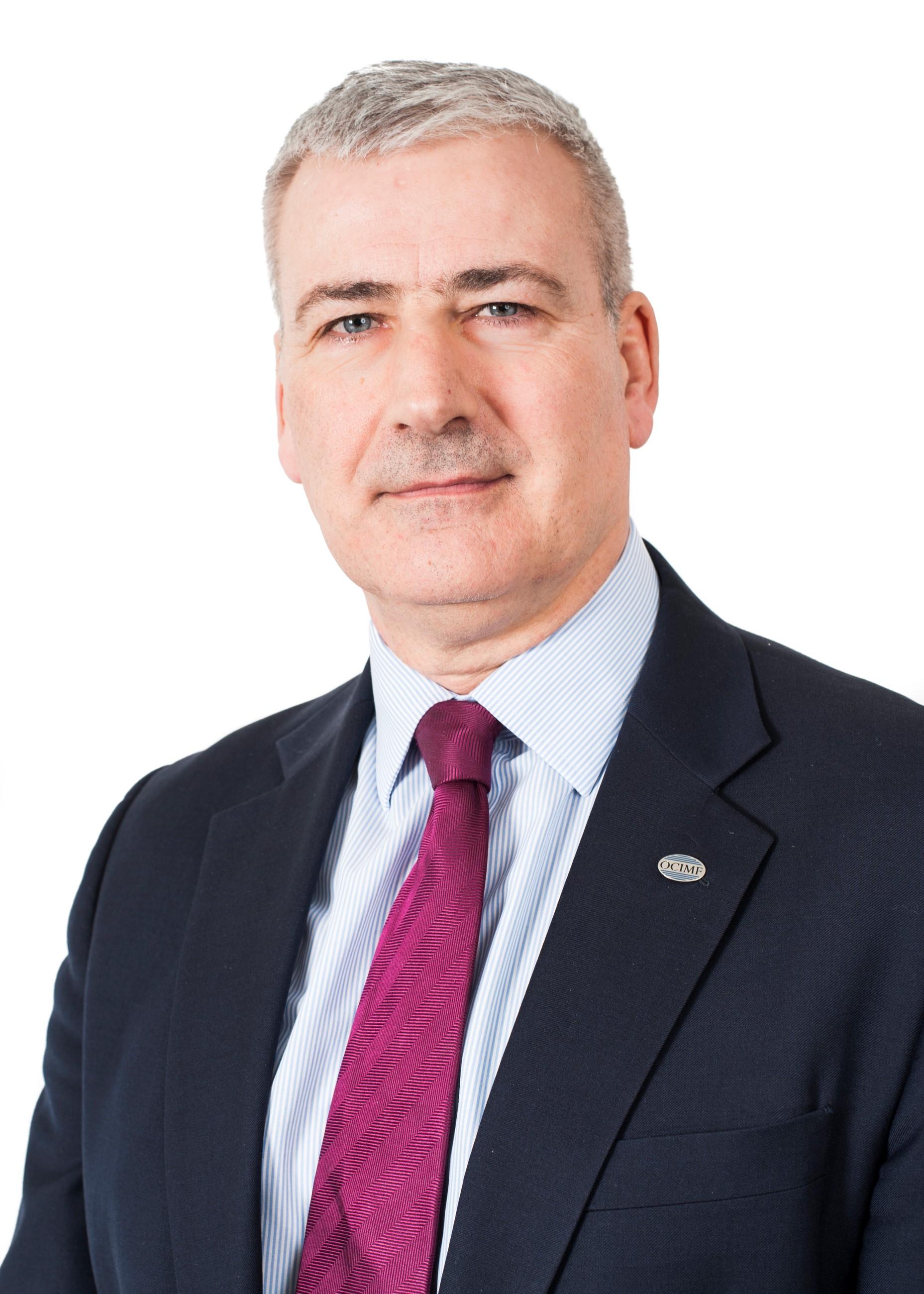
Throughout 2019 we have seen many developments and changes in the industry. For example, maritime security incidents in the Straits of Hormuz and the Gulf of Guinea have increased, with countries and international naval combinations making efforts to address these issues. Also, concerns have been raised on the safety of 0.5%-sulphur fuels, and industry guidance issued on how to supply, store and use these fuels. Greenhouse Gas (GHG)-emission issues have gained increased attention and focus across the industry and, of course, the safety of personnel remains foremost in our minds. Of these four topics, only 0.50-sulphur fuel will be fully addressed next year, and hopefully it will settle down quickly with no adverse effects. Maritime security, GHG emissions and personnel safety will continue to change and evolve over time. Our goal, along with the rest of industry, is to continuously search for solutions to reduce their impact to zero. Connected to this theme, we are rolling out our new strategy in a phased manner from 1 January 2020 (see the article below). We will be refocusing on high-risk areas of safety, health, security and the environment, and on using our member resources more effectively.
I am happy to announce the publication of the revised editions of Offshore Vessel Management and Self Assessment, Second Edition (OVMSA2), and Design and Construction Specification for Marine Loading Arms, Fourth Edition, (MLA4). A lot of work has gone into these revised editions, and I want to thank both members and external stakeholders for their time, effort and hard work. In addition, we continue our focus on improving the safety performance of inland waterway barges. As demonstrated by the number of articles on this topic, a lot of resources are being applied to this effort. Finally, below, there is a progress communication on the Vessel Inspection Programme (VIP) which is a root and branch review of SIRE. This work will continue in 2020 and we look forward to updating you on its progress.
I wish you all a happy, healthy and prosperous 2020.

Rob Drysdale
Director OCIMF
Do you have news that you'd like to share with our readers? If so email
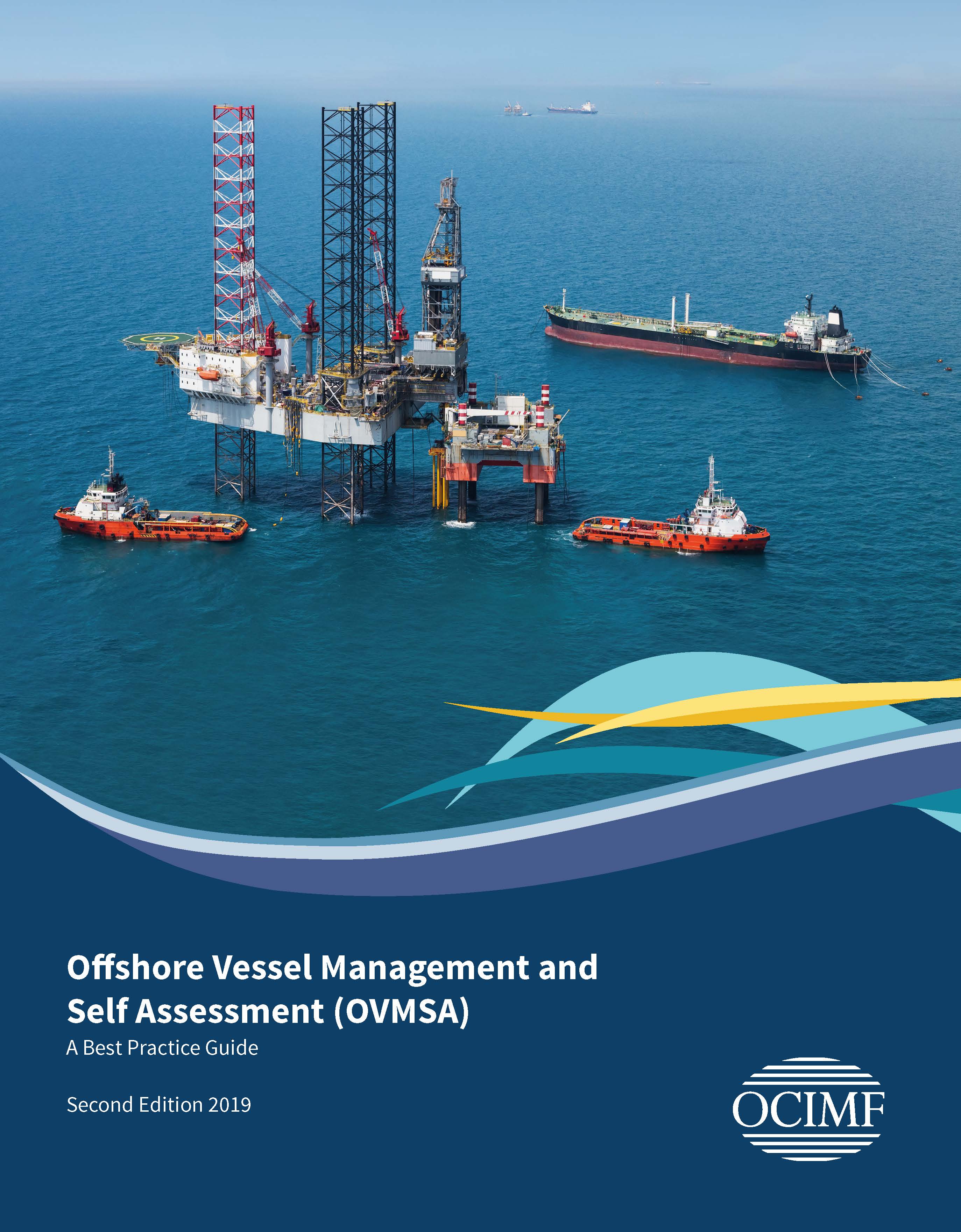
Offshore Vessel Management and Self Assessment – Out now
Offshore Vessel Management and Self Assessment, Second Edition (OVMSA), is out now.
This second edition has been updated to reflect current legislation, expectations and emerging issues, and reflects feedback from companies, industry bodies and users of OVMSA.
Click here to order your copy today
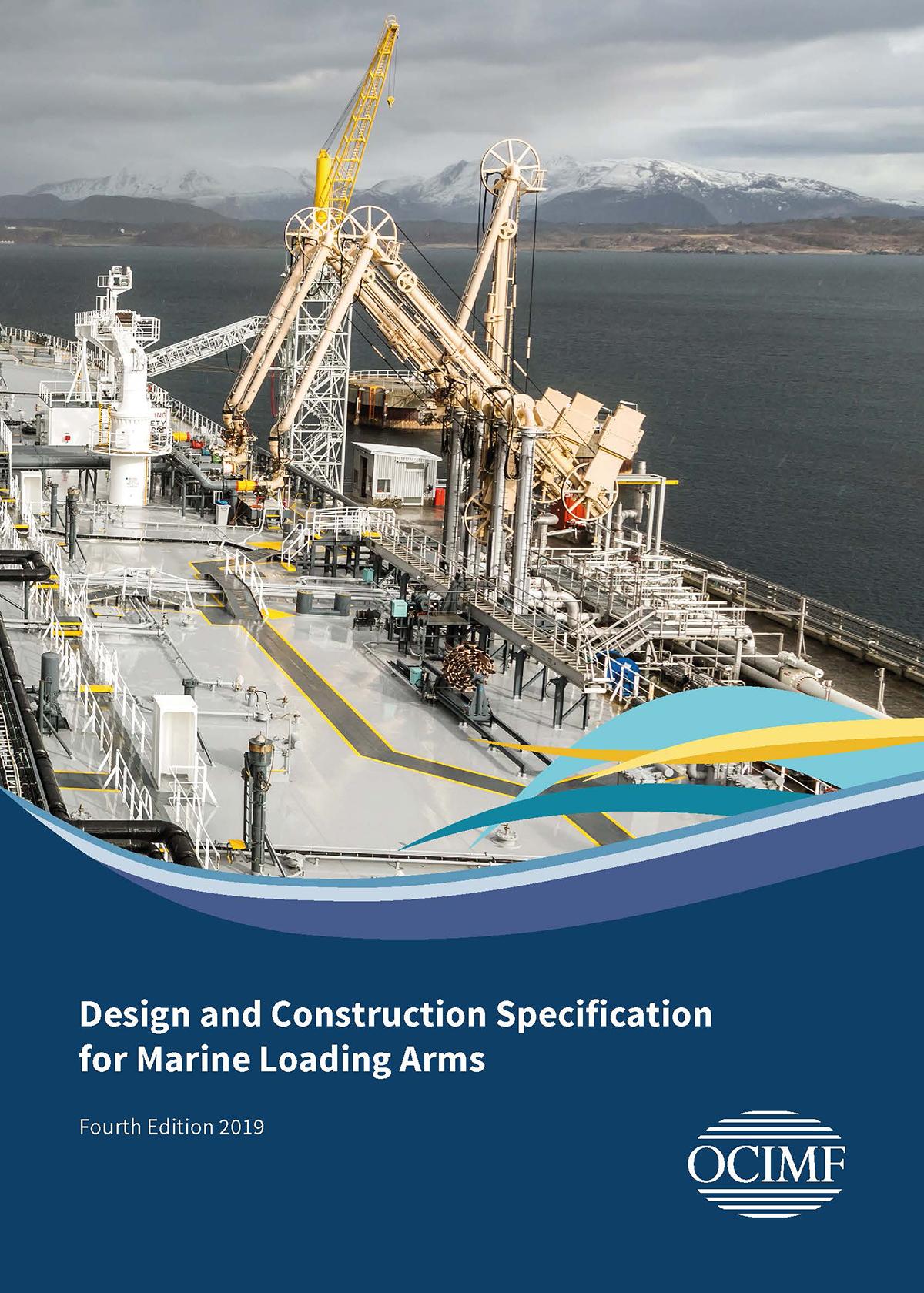
Design and Construction Specification for Marine Loading Arms – Out now
OCIMF is proud to announce the release of the Design and Construction Specification for Marine Loading Arms, Fourth Edition, on 13 December.
This publication provides guidance to owners and vendors on designing and procuring marine loading arms (MLAs).
It serves as a definitive guide to MLA construction and specification, covering topics such as applications, variability, operating envelopes, products transferred, servicing, manifold spacing, jetty and piping layouts and arm styles. This publication also includes guidance for Liquefied Natural Gas (LNG) MLAs to supplement the ISO standard.
With the publication of this edition, Design and Construction Specification for Marine Loading Arms, Third Edition, will be superseded and removed from distribution.
Click here to order your copy today
OCIMF's vision and mission
Beginning January 2020, OCIMF will be implementing a new vision and mission.
Vision
A global marine industry that causes no harm to people or the environment.
Mission
To lead the global marine industry in the promotion of safe and environmentally responsible transportation of crude oil, oil products, petrochemicals and gas, and to drive the same values in the management of related offshore marine operations. We do this by developing best practices in the design, construction and safe operation of tankers, barges and offshore vessels and their interfaces with terminals and considering human factors in everything we do.
Europe Inland and Coastal Barge Focus Group
8th meeting: 9-10 December, London, UK (hosted by OCIMF)
The Europe Inland and Coastal Barge Focus Group (EICBFG) reviewed and discussed:
- SIRE CAT 3 programme in the European region.
- Feedback from the European CAT 3 Inspector Refresher training course.
- Updates on the possible transition of European Barge Inspection Scheme (EBIS) to the Chemical Distribution Institute (CDI), OCIMF or another organisation.
- Actions to complete for the OCIMF information paper on Effective Communications during Navigation on Inland European Waterways.
- Agenda for the 2020 Barge User Group meeting.
Next meeting: 18-19 March 2020, Brussels, Belgium (TBC)
South and Central America CAT 3 Inspector Refresher training
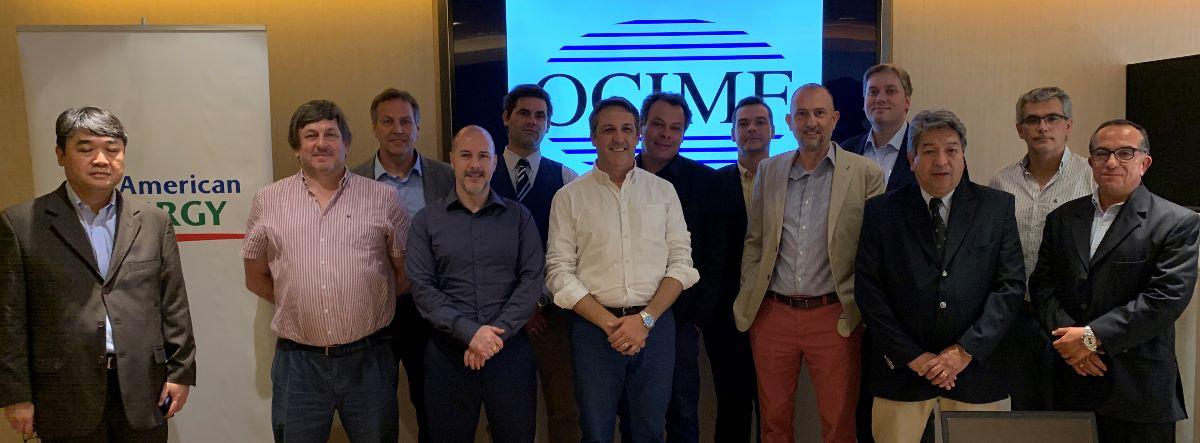
Meeting: 19 November, Buenos Aires, Argentina (hosted by Pan American Energy)
The attendees heard presentations on:
- OCIMF, including its mission, organisation, programmes and publications.
- Global Inland and Coastal Barging Focus Group (GICBFG) and South and Central America Inland and Coastal Barging Focus Group (SCAICBFG).
- Closed loading/discharge conditions on tank barges and associated issues.
- Updates to the revised guidelines being applied in the regional SIRE CAT 3 variant.
- Inert gas systems.
- Undertaking a machinery space inspection.
- Inspector ethics and expectations.
- How to improve the quality of inspections and reports.
- Open forum for inspector feedback.
Next meeting: TBC
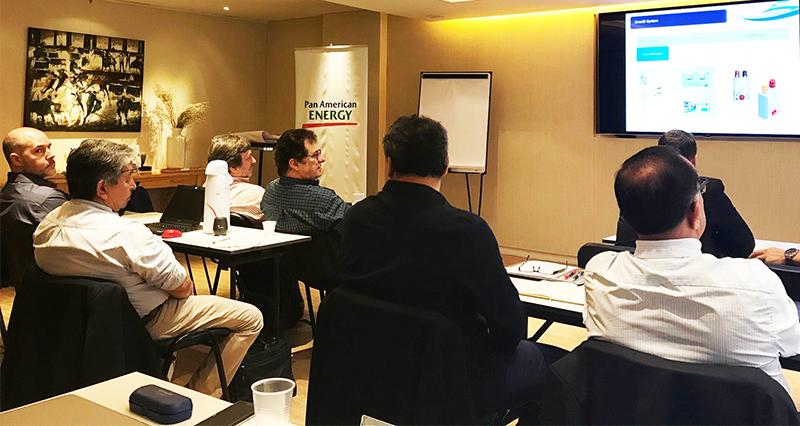
South and Central America Inland and Coastal Barge Focus Group
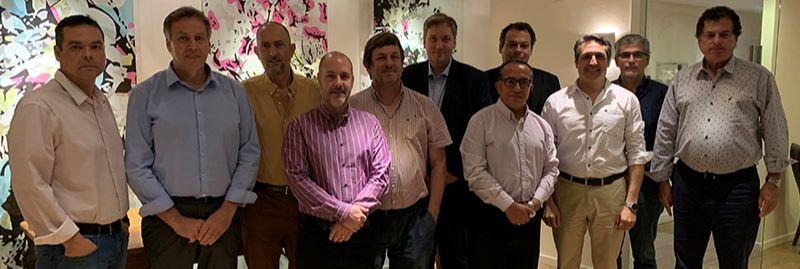
12th meeting: 20-21 November, Buenos Aires, Argentina (hosted by Pan American Energy)
The focus group reviewed and discussed:
- South and Central American (SCA) CAT 3 SIRE variant performance within the context of the SIRE programme.
- Improvements to CAT 3 SCA Inspector Refresher training following the course on 19 November in Buenos Aires.
- Actions to complete for the OCIMF information paper on Considerations for Converting Non-propelled Inland and Coastal Barges to Closed Loading.
- Agenda for the 2020 Barge User Group meetings.
Next meeting: May 2020, Panama City, Panama (hosted by TBC).
Offshore Marine Committee
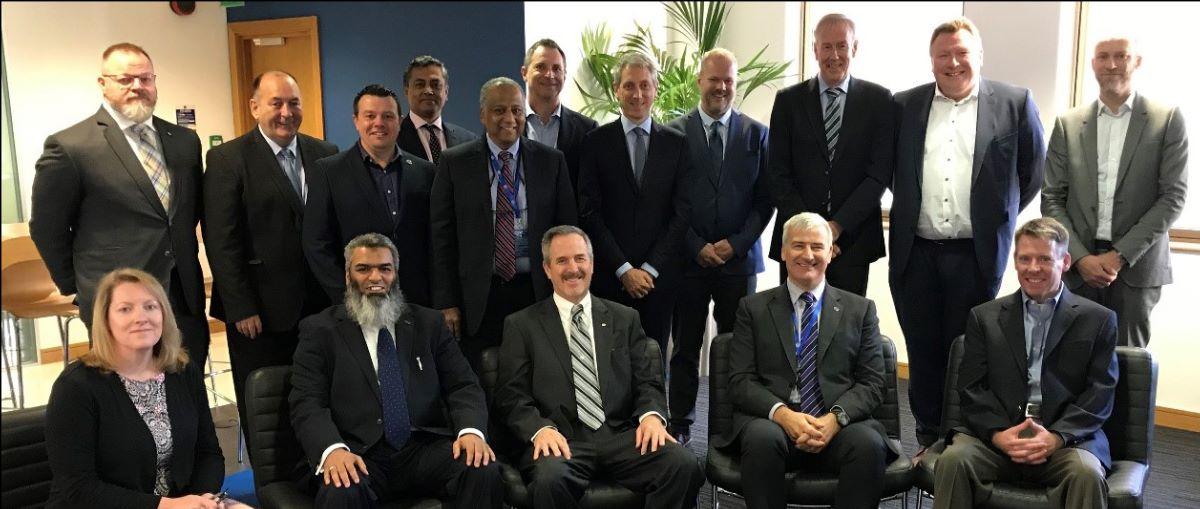
The 19th meeting of the Offshore Marine Committee (OMC) was held in London in October 2019, with all members present for the first time.
The Nautical Institute and Marine Technology Society (MTS) attended the OMC meeting as experts on dynamic positioning activities. OMC discussed the following:
- No change to minimum four inspections requirement for OVID inspectors in 12 calendar months
- Minimum 12 candidates are required to conduct a new course.
- OMC completed the periodic review of OCIMF Offshore publications and asked FSG to come up with prioritisation for revision.
- OCIMF information Paper on Dynamic Positioning Failure Modes and Effects Analysis (DP FMEA) Assurance Risk Based Guidance.
- OVID Training and Accreditation Review working group progress.
- Regional Marine Forums to include offshore topics.
- Dynamic Position (DP) schemes and closed bus mode of operations during DP position keeping.
OVID User Group

19th meeting: 17 September, Bergen, Norway (hosted by OCIMF)
The OVID User Group (OUG) Secretary Faisal Rashid advised that we have 39 attendees and 22 recorded comments at the meeting. OUG discussed some of the following topics:
- OVID inspection numbers – Members not using small vessel questionnaire consistently.
- Considerations for uniform acceptance of DP remote trial monitoring.
- Questions, e.g. if an OCIMF OVID Trainer does not have any knowledge of offshore, then what are the benefits of OVID inspectors who are trained by a non-offshore experienced person, and do they expect the same for tankers?
- Considerations for a common approach to OVMSA and sharing information between OCIMF members.
- Uniform incident report systems for OVID and SIRE.
- Cyber security questions for OVID question sets.
- Potential improvements to guidance note regarding Contractor Health, Safety, Security and Environmental (HSSE) management systems.
- Minimum guidance on what equipment needs to be tested during each inspection.
A discussion followed regarding payments for OVID inspections from the vessel operator to OVID inspector directly. OCIMF Technical Adviser (Offshore) Faisal Rashid mentioned that there is an ongoing discussion within OCIMF on perceived Conflict of Interest (COI) with the above arrangement, and potential alignment of the payment process with SIRE was being considered.
Next meeting: 11 February 2020, Houston, USA (hosted by OCIMF)
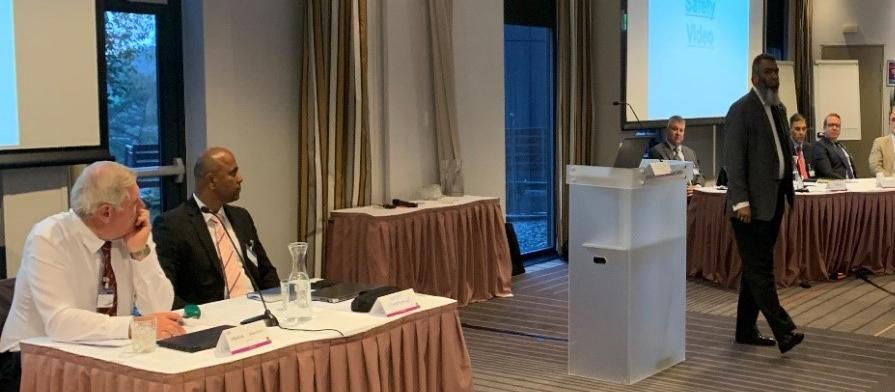
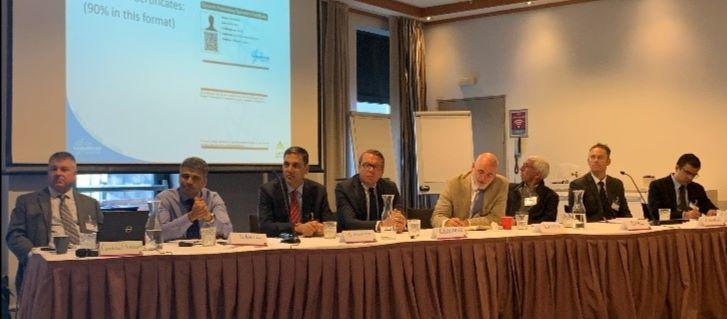
OVID Focus Group

19th meeting: 18-19 September, Bergen, Norway (hosted by Equinor)
Topics discussed, debated and agreed during the two days of deliberations included:
- Comparison between 2018 and 2019 Live Inspector populations. Due to the perception of declining numbers of active inspectors globally, members presented evidence to suggest that the decline – 2018 (412) and 2019 (354) – was a natural attrition rate according to industry trends. All members in attendance agreed that the system is in balance, and unanimously agreed that there should be no changes to the minimum inspection requirements and to the eligibility criteria for new inspectors in 2020.
- Review of the inspection data to be carried out by the current Offshore Training and Accreditation Working Group which will present potential solutions, if views change, in 2020 for OMC consideration.
- Formation, and approval by OMC, of a new OCIMF Working Group for the information paper DP FMEA Assurance Risk Based Guidance.
Next meeting: 12-13 February 2020, Houston, USA (hosted by ConocoPhillips)
Floating Systems Group
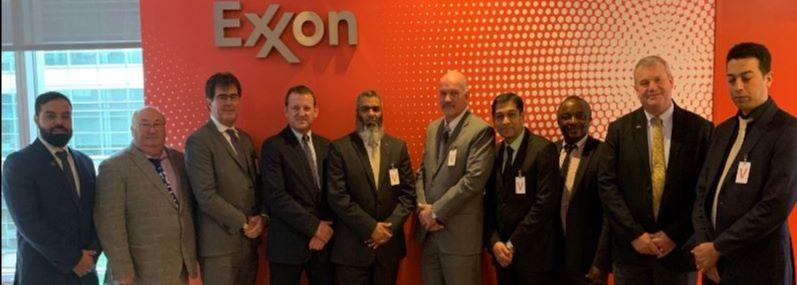
19th meeting: 11 – 12 September 2019, Houston, Norway (hosted by ExxonMobil)
The Floating Systems Group (FSG) Chair reported the periodic review of all OCIMF’s five-year-old publications and made recommendations to the OMC according to below three criteria:
- Correct and no need for revision.
- Single Point Mooring Maintenance and Operations Guide.
- Requires significant revisions and needs a new version:
- Competence Assurance Guidelines for F(P)SOs.
- Competence Assurance Guidelines for Mooring, Loading and Lightering Masters.
- F(P)SO Poster (after review, to be published as an information paper).
- Guide to Manufacturing and Purchasing Hoses for Offshore Moorings (GMPHOM).
- Guidelines for the Purchasing and Testing of SPM Hawsers.
- Marine Breakaway Couplings.
- Recommendations Relating to the Application of Requirements Governing Seafarers’ Hours of Work and Rest.
- Safe Transfer of Liquefied Gas in an Offshore Environment (STOLGOE).
- Obsolete and should be withdrawn:
- Cargo Inspector—Safe Working Practices.
- Lifeboat Incident Survey.
- Results of a Survey into Lifeboat Safety.
OMC actioned FSG to recommend a risk-basis priority for the periodic review of publications to start revisions in OMC20.
F(P)SO Heading Control Guidelines Working Group
4th meeting: 3-4 December, London, UK (hosted by OCIMF)
The group carried out the following actions:
- Reviewed updates from previous drafts of the F(P)SO Heading Control Guidelines.
- Updated, developed and reviewed chapters.
- Reviewed bids from four companies that were approached for an offer to develop a bollard pull calculation tool, and selected MARIN to complete the tool in eight weeks upon contract signing.
Next meeting: 5-6 February 2020 (as a virtual meeting)*
*Note that this meeting serves to prepare the Guidelines for approval by FSG in March 2020 in Singapore.
IMO updates (2019 4Q)
For the details of these meetings and linked resolutions/circulars, please log-in to the IMO area on the OCIMF members' website here.
London Convention/London Protocol meeting
The 41st Consultative Meeting of Contracting Parties to the London Convention and the 14th Meeting of Contracting Parties to the London Protocol (LC 41/LP 14) was held 7-11 October.
The Parties agreed to:
- Remove a legal barrier from multi-national carbon dioxide (CO2) seabed storage projects by adopting a provisional measure which allows movement of captured CO2 between countries (Resolution LP5 14).
- Update de-commissioning guidelines for offshore platforms which incorporate elements of the Hong Kong Ship Recycling Convention and its guidelines.
Evaluation of Safety and Pollution Hazards of Chemicals Working Group
The Evaluation of Safety and Pollution Hazards of Chemicals (ESPH) Working Group met 14-18 October and approved the next set of the requirements for chemical substances valid from 1 January 2020 (MEPC.2/Circ.25). The group agreed to recommend that further work should be carried out on the chemical mixtures of MARPOL Annex I and Annex II cargoes.
Intersessional Working Group on Reduction of Greenhouse Gas Emissions
The sixth meeting of the Intersessional Working Group on Reduction of Greenhouse Gas Emissions (ISWG-GHG) took place 11-15 November. ISWG-GHG focussed on short-term measures for the reduction of carbon dioxide (CO2) emissions. While the meeting did not select a short-term measure, they agreed to pursue goal-based measures which will allow shipowners to choose a suitable measure(s) for them.
IMO Assembly
The International Maritime Organization (IMO) held its 31st Assembly 25 November-4 December. The Assembly elected the IMO Council Members for the 2020-21 biennium and re-elected Mr Kitack Lim as Secretary General for 2020-23. It also adopted various resolutions, including the revised Port State Control (PSC) Guidelines which address verification of the low-sulphur fuel requirements (MARPOL Annex VI regulation 14) entering into force on 1 January 2020.
Register now for the 20th OVID User Group meeting!
The 20th OVID User Group meeting (OUG20) will take place in Houston on 11 February 2020 from 08:45 to 13:00.
The OVID User Group (OUG) gives users of the OVID programme an opportunity to provide comments and feedback on the programme and on where improvements might be considered. It also allows the OCIMF Secretariat to give advanced notice of and discuss changes to the OVID programme.
Issues discussed and raised by the OUG will be reported to the OVID Focus Group for review and reporting to the Offshore Marine Committee.
Due to space restrictions, we may need to limit the number of places for each organisation in attendance. Places will be allocated on a first-come first-served basis.
Vessel Inspection Programme project progress report
To ensure programmes keep pace with industry change, in 2017, OCIMF established a Vessel Inspection Programme (VIP) Steering Group and convened specialist Working Groups to review and improve upon OCIMFs Ship Inspection Report Programme (SIRE) tanker risk assessment tool.
The aim of the VIP Project is to develop a new Vessel Inspection Programme (VIP), which once delivered, will provide an enhanced inspection regime, process and tools. It will build upon the strengths of SIRE and further strengthen the industry’s ability to prevent harm to people and the environment. The Offshore Vessel Inspection Database (OVID) is not included in the scope of the current VIP Project and will continue to be developed as a key OCIMF programme.
The VIP Project is managed by the VIP Steering Group on behalf of the General Purposes Committee (GPC). The Steering Group oversees three Working Groups focussed on Governance, Inspection, and Technology and Innovation. The review process has paid particular attention to issues related to human factors, procedures and equipment, training and development of Inspectors and the overall quality assurance of the programme. The review phase of the project has now been successfully completed.
Key enhancements under the VIP Following extensive consideration, key areas for development have now been identified, and the new VIP is now in development. It has been agreed by the Steering Group that key enhancements delivered through the VIP will include:
- A more comprehensive inspection regime with enhanced tools, strengthened governance processes and more in-depth reporting outcomes, following a risk-based approach to inspecting vessels.
- Enhanced inspection criteria on equipment, procedures and human factors, to further improve control over vessel safety systems and processes. This will also include enhanced pre-inspection processes and more robust monitoring protocols on the inspection process.
- The use of web-enabled tablet devices to allow for inspections and feedback to be reported and documented in realtime and allow inspections to be completed more efficiently, with the adoption of a comprehensive yet standardised reporting format.
- Enhanced policies, procedures, and user guidance which will be housed in a Process Documentation Library (PDL), an enhanced online repository.
An enhanced governance process which will provide greater transparency and control for all parties involved in the programme, either directly or indirectly, and the adoption of rules that are enforceable and auditable by OCIMF. - Significant enhancements to training and development of Inspectors, to ensure the highest standard of delivery is maintained, and continuously improved.
Implementation timeline It is anticipated that the VIP will be delivered and rolled-out from 2021, subject to periods of development, testing and feedback, and following a Management of Change process. SIRE will continue to be supported and improved while the VIP Project develops, ensuring it incorporates the latest industry standards, best practices and regulations.
Should you wish to put forward subject matter experts, or if you have any questions relating to the VIP Project, please contact VIP Project Adviser David or Deputy Director Sam Megwa.
To reserve your place at the OVID User Group meeting, click here

Thank you for your support in 2019!
We wish you all a happy, healthy and peaceful 2020.


